The vision of FIDE's Managing Director - Dana Reizniece-Ozola
A pre-requisite for an organization to become world class is to have competent people working for it in key managerial positions. This is exactly what FIDE has done by roping in Dana Reizniece-Ozola as the managing director. A look at her credentials and you can have no doubts about her competency. Dana is a former Minister of Economics of Latvia as well as its Finance Minister! She has a Masters in Business Administration, has been the head of space programs and her list of achievements is quite huge. To add to all of this, she is also a strong chess player - a WGM with an Elo of 2283. At the World Championship 2021 in Dubai, IM Sagar Shah met with Dana and had a detailed interview about her journey of life, becoming FIDE's managing director, her vision for FIDE and much more.
Using Chess as a powerful Social Tool
Dana Reizniece-Ozola - I had heard this name in 2016 when she had got the better of Hou Yifan. I got to know at that point that she was the Finance Minister of Latvia. A woman of such stature and yet being able to beat the strongest female player on the planet, that was truly astounding. But time passed by and I forgot about the name. Until earlier this year, when Dana became the Managing Director of FIDE. This happened on the 4th of January 2021. When I got to know that Dana was present at the World Championship 2021 in Dubai, I was very keen to speak to her. She was the former Minister of Economics (2014-2016) in Latvia. Later she went on to become Finance Minister of the country (2016-2019). And she is also a WGM with a rating of 2283. How can someone achieve so much that too in just 40 years of life? What made Dana join FIDE? With all her political experience and taking charge of such an important post in the FIDE, wasn't this going to be a boon for the chess community? How would she be able to bring a change in the world of chess? What are the things she has already done in her 11 months of work? There were many questions that I had on my mind.
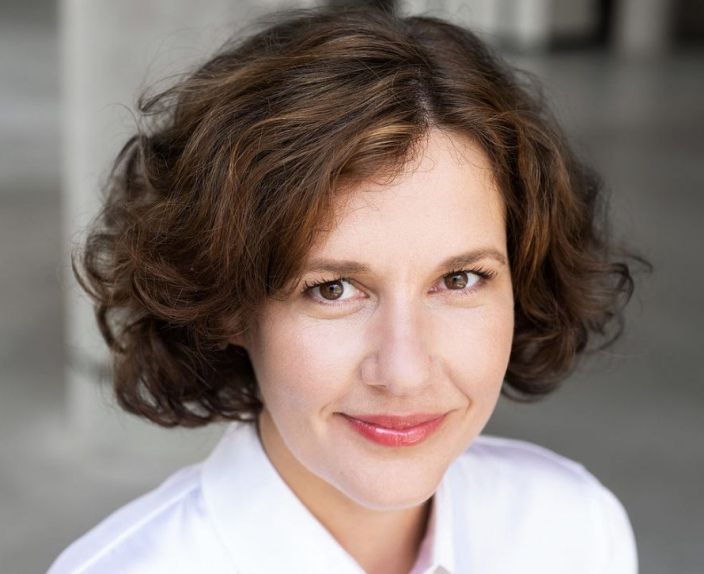
I saw Dana on day one at the World Championship venue in Dubai. The first thing that struck me as quite unusual was the energy and enthusiasm with which she would greet people. Being the Managing Director of FIDE and being present at the World Championship, she should be overworked, right? She should be tensed, she should be rushing around, she should be directing people on what needed to be done. But there she was, smiling, meeting the guests with warmth and laughter. I am sure she had her hands full with tasks that needed to be done, but she never let it show. After a couple of days I approached for an interview. She immediately agreed to do it - 30th of November 3 p.m. is it fine? And so on 30th of November I arrived an hour and a half before the start of the 4th game of the match. Dana was also there, right on time and we sat down to speak about her chess, life, work in FIDE and more.
Interview with Dana Reizniece-Ozola
Sagar Shah (SS): Dana, you have so many achievements to your credit. You have been a former Economics and Finance Minister of Latvia. You have also worked as a Chairperson of multiple commissions in your country. At the same time you are also a very strong chess player - a WGM! I want to understand how you achieved all of this. But first, I want to see some of your best games! I saw that you have been able to beat many strong players including Hou Yifan, Van Wely, Hort, Huebner among others.
Dana Reizniece-Ozola (DRO): It is because I have a strong school since my childhood. I have been working on chess quite a lot. When I was a kid, I was going to my chess classes six days per week, working like five hours per day. I loved it very much, so the base has always been there. It's just that I have had a lot of other things in my life. But when I do have time, I have a great appetite for chess and that reflects on the chess board as well.
SS: That's great to know. I want to start with your most famous victory, the one against Hou Yifan. What memories does this game evoke in your mind?
DRO: Somehow, I had a feeling that I would be winning the game already before it began. Sometimes you get this feeling in the gut when you go to your round.
SS: Even when you are facing someone who is 400 points stronger than you?
DRO: Sometimes you have the feeling even when you are playing against somebody who is weaker than you, that today is not going to be your day! That you are going to lose even if you try hard. I don’t know, probably, I am the only one who has this feeling before the games. But that day, I somehow, woke up and I was so fresh and so self-confident that I really felt that “this is going to be my day”. That's the reason why I put on the Latvian National Uniform as well.
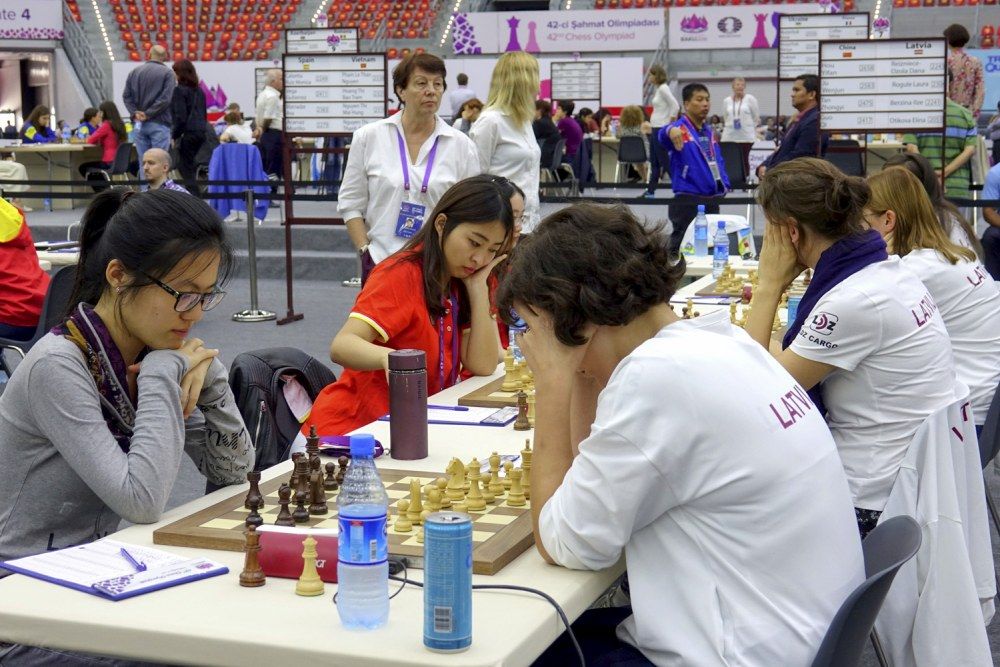
SS: From your games what I understood is attack comes very naturally to you.
DRO: Dynamic chess is my style. I am not scared to sacrifice pawns or pieces. I come from Riga. The home of the Magician of Riga - Mikhail Tal. I won’t say that I am Tal-like but dynamic chess is something that is in my blood. I prefer complicated positions. The more complicated it is, the more comfortable I feel. It is the same in real life in politics and other areas too. The more stress, the more tension somehow the better oriented I get. If it is too common, I get bored!

SS: This is the second game I wanted to discuss with you and that was your win against Van Wely I think it was a Rapid event. When did this happen?
DRO: It was held in Estonia. It was quite a nice tournament actually that is organized every year. It is a pity that I could not attend it this year because of me being here in Dubai.
Van Wely vs Dana Reizniece-Ozola, 2015
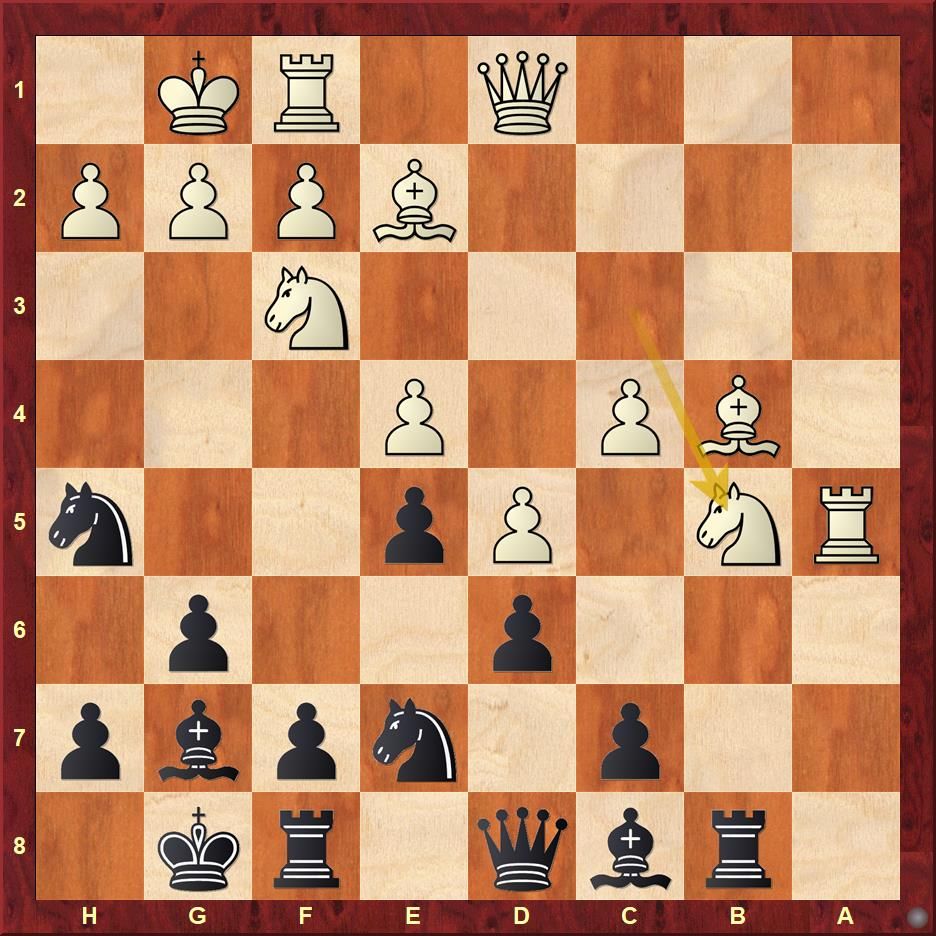
SS: But who taught to play this aggressive kind of chess. Did you have a coach who instilled this in you?
DRO: It’s not about your coach, it’s about your character. I do really believe that you can see the personality, the character, and the features of a person on the board. So, I am such kind of a person.
SS: How did this character come to you?
DRO: It is inborn, I guess. You cannot choose your character. You can find something, try to fight some of your bad habits but there are things that nature, the God or whatever you call it, gifts you. But yes, I have been working with GM Zigurds Lanka and he has this saying that - you have to play "die Dynamisch Schach (Dynamic Chess) because he works with a lot of German chess players. We always have a joke: whenever you sacrifice something, we say "Dynamisch Schach!" [Laughs]. Especially for the ladies I think, that is a smart thing to do - to teach them to be a bit more aggressive. One should not forget that the King is the most important piece on the board. I don't recommend playing Kamikaze Chess, but not being afraid of sacrificing material for initiative and development of pieces is a good quality to have. I also think your opening selection and your repertoire do influence your style. King's Indian does suit me very well.
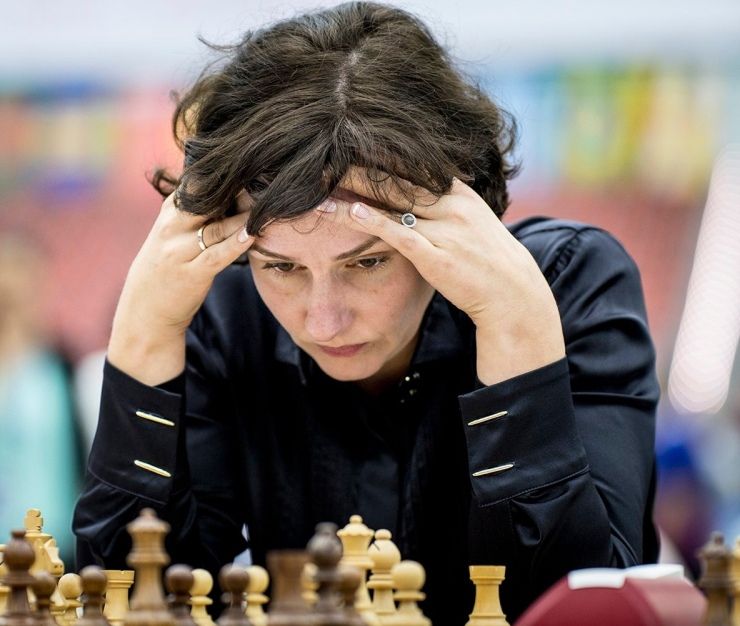
SS: Dana, chess was actually something that is very close to your heart but you then had to take a very tough choice, at some point. How did you make that decision to stop playing professional chess?
DRO: That was after I finished my high school and before entering the university. I was just considering what to do in my life and whether to go for professional chess or not. At that time I had already become the European Chess Champion under-18 twice. This is already quite a notable indicator. I was also the second in the world in my age group. At that time I understood two things: One which is that I would be missing the financial resources to advance in play because in our country the system was built in a way that when you are in the school you get notable state support, but afterwards, you are on your own. I didn’t have a rich family that would support me at that time. As a chess player, you have to hire coaches, you have to go to the tournaments and back then there were not that many sponsorship opportunities as well. That was one of the reasons. The other was that I started to understand that I was interested in so many things besides chess in my life. I know that Caissa, the Goddess of chess is a very jealous lady. If you do not devote 100% to her, she will penalize you. So, I decided to just keep her as a good friend and not make it my boss! [Laughs] I kept chess always in my life even when I was busy at times, but did not make it my profession.

SS: I saw that you also played at the Riga Open Rapid which happened very recently.
DRO: Yes, I like to play chess and I grab the opportunity to play as often as I can. I even play for a German Club and have been doing so since 2011. It has been my run-away opportunity. Chess tournaments in Germany where I get to play one or two games, read some books, have some time without kids, family, job and obligations, is some kind of meditation for me!
SS: You very much like the fact that you are a part of this "Chess community."
DRO: Being part of the chess community has always been very valuable for me because chess players in general, I truly believe, are very kind people. We all have some peculiarities and characters and that is true for different chess players as well but in general if you look at chess society, we really are nice people and hard work comes naturally to us. In order to succeed you have to invest a lot of time, energy, effort, sweat and you are united for one common thing - chess. That is like a strong glue that keeps us all together.
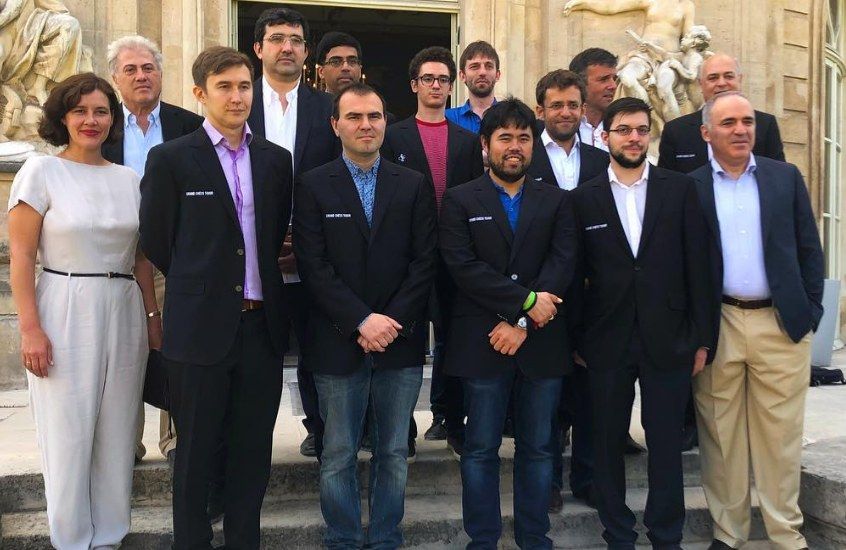
SS: When you play chess you are always wanting to win the game. When you are into politics or FIDE related work it is more about collaborations. Is it difficult to switch between the two?
DRO: With years of experience you understand that with collaborations you could get to the positive result and to your goals much faster and in a more sustainable way because life is not a sprint, it is a marathon and building relationships, networks, playing fair always pays back. That being said, just like on the chess board, I am very competitive in real life as well.
SS: But you do not come across as competitive. When I see you, you are always smiling, you are very friendly.
DRO: Smile is the strongest weapon. [Smiles] The strongest weapon to succeed in your life. Be kind and the road will respond. I actually believe that things you give to the world, you get back. In short term you can succeed by playing harsh. But it is always very short term.
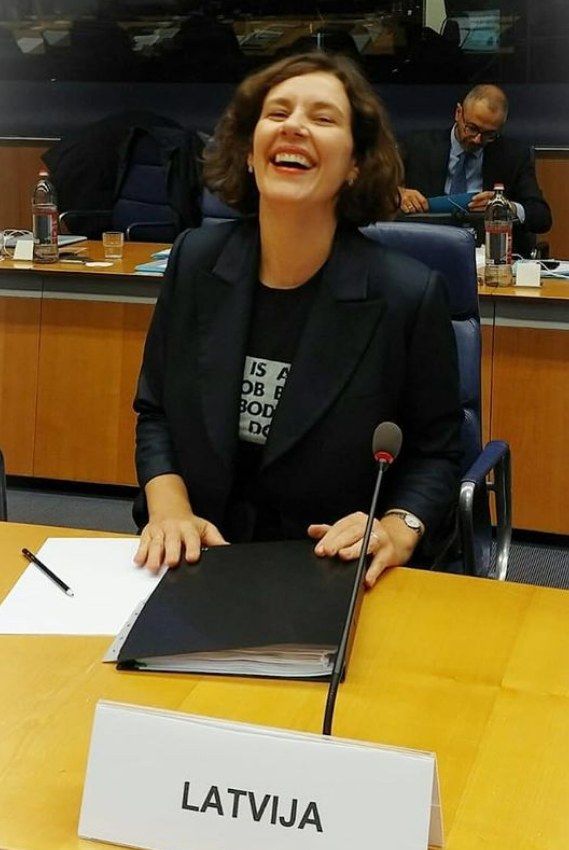
SS: You are two times European Champion, then you came to India as well to play at the World Cup back in 2000. You were 19 years old and so clearly you were ambitious about chess. Then you made a decision to stop pursuing the sport professionally. But how did you get into politics? I also read that in between you also did an MBA in Space Technology and you also launched some kind of space programs. How did you do all these - from Chess to Space programs - to politics and now into FIDE?
DRO: Chess is a complex game and life is not an easier one. So, you have to be strong in various areas. I have a joke that if you come from a small country, you have an obligation to use all your talents that God has given to you because there is no other way for the country to develop. [Laughs] If not by numbers or quantity then by polity! It can be true for other sports as well but in chess this regular training and forcing yourself to do a little more than you are willing to, since early childhood gives you such strong capabilities which are very useful in every area of your life. Whatever you chose, in my case it was space technology and working with young businesses in high technology park.
Before I entered politics, I used to be the Director of Ventspils High Technology park where I was developing the triple helix concept, trying to arrange the system where businesses, municipality (which is the government) and the university worked together. And we were doing very well. So I was actually doing the work of my dreams, but at the same time I’ve always been socially active at local level, then at municipal level. So at that point the leader of our political party that I was member of, but I was not an active member, just asked for my permission to get me listed on the election list and I agreed, not really thinking that I could be elected. And guess what, I was elected! Then my whole world turned upside down and my whole life turned around. I had to quit my job that I loved very much, I had to my leave my living place and move to the capital and in the beginning I did not understand what was going on. Why is life giving me this direction? But one thing I have learned in my life is that planning long term does not work. I pursue another model - I do the maximum at the place and time that I am at that very moment and then somehow the opportunities open up. The doors will open up for you and then it is important for you to see them and say yes. So that’s the path I followed from technology park to business support to politics and since the beginning of this year into the chess world!
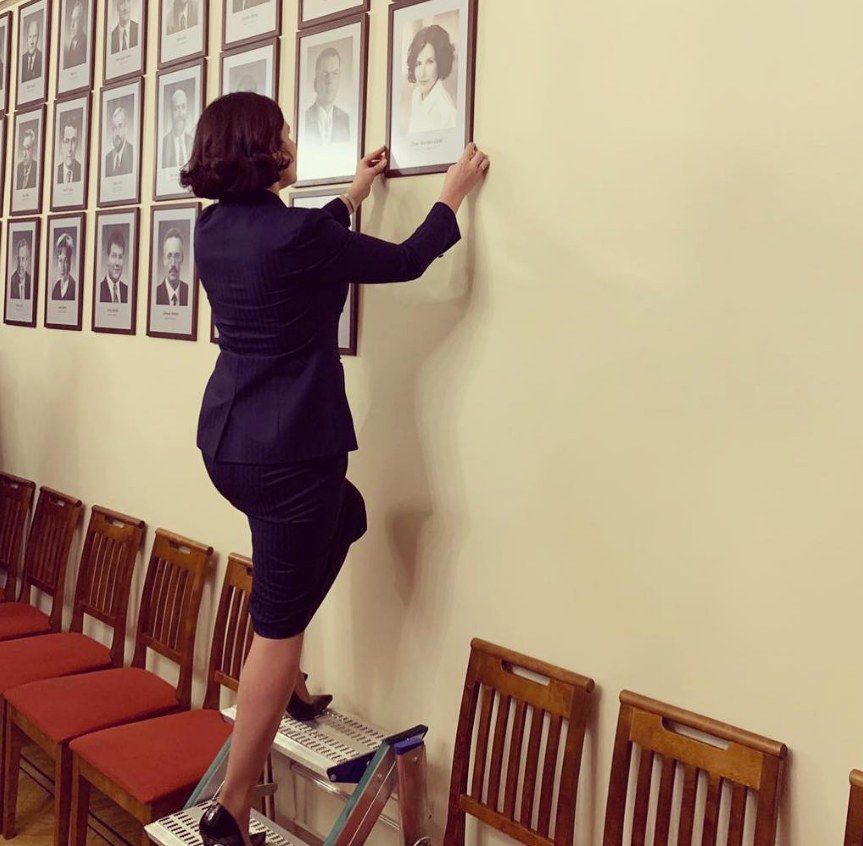

SS: Do you ever feel like, you started something, you are getting good at it and suddenly you move to something else?
DRO: It is not really something else. In any case it is about management. Over a period of time I have been building my management capacities, which is actually my profession. At the end of the day it is not important whether it is the politics, business or just management. It is like playing chess. I mean it is not about which opening you play. As long as you know the rules and you follow the principles, you are going to play well!
SS: So, you are not of that mind-set that once you choose one opening you continue it for the rest of your life?
DRO: I do that in chess because I am too lazy and do not have time for learning other chess openings but not in real life. [Laughs] In life you have to improve all the time and it is important to have a variety of weapons in your pocket!
SS: When you started working for FIDE, did you ever feel like you are coming from something bigger into something that is smaller? From being the Finance minister of Latvia to the Managing Director of FIDE?
DRO: No, on the contrary. I see it as another step higher in my life because FIDE is the international chess federation working for the whole world! For 196 federations and for the benefit of the entire society. I really feel honoured and I really feel the sense of a mission in my position. This is also something that I have learned in politics that being a politician is very unstable. You have a limited time and mandate but that means that during this time that is given to you, you have to use your mandate to really deliver; to make a difference. And this is something that I feel also for FIDE. I do not know how much time I would spend here but I feel privileged that I have this mandate for a very high level management position and I have to deliver.
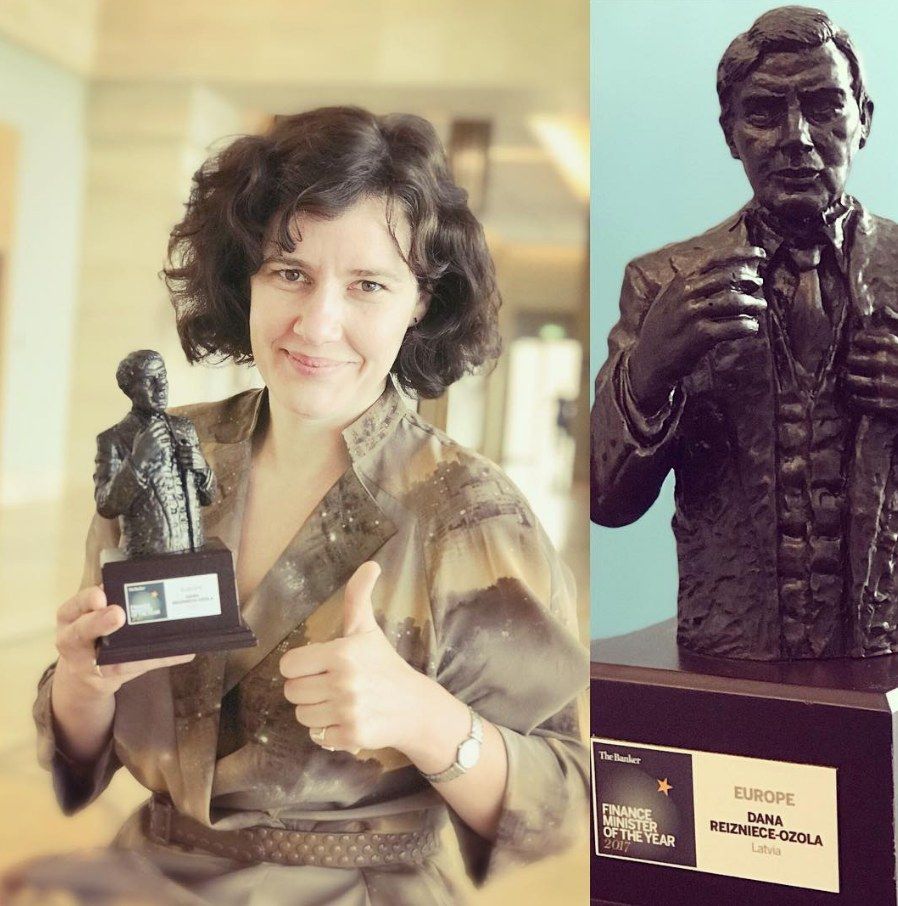
SS: How did you become the managing director of FIDE? How did it come about?
DRO: That was the proposal of Mr. President Arkadij Dvorkovich who approached me (most probably) to strengthen the administrative capacities of FIDE and to improve our abilities to work with federations because there are very few people who are actively working on everyday basis. The amount of work in FIDE is huge and each of my colleagues, including Mr. President himself, are doing an amazing job really spending a lot of time. Sleep is not the priority for any of us. So the good thing is that we love chess so much that gives us the energy. It's like charging our batteries.
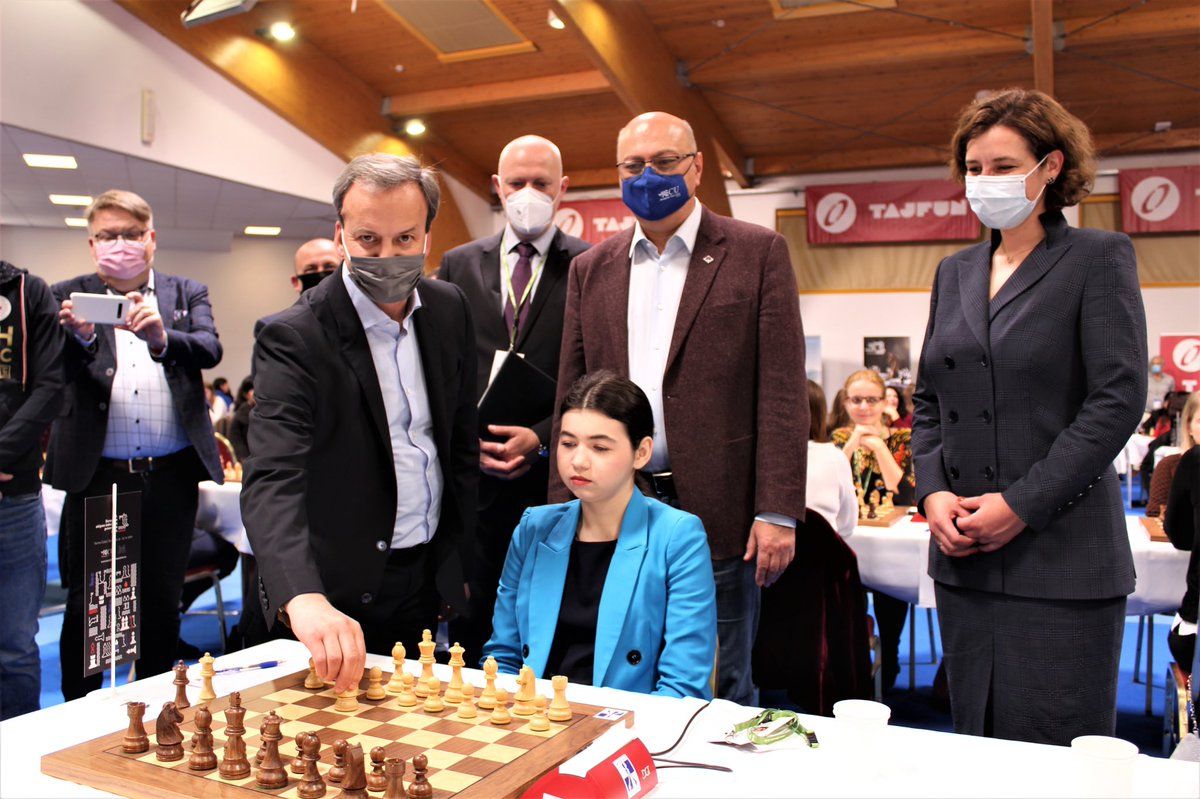
The thing that I have been exploring in FIDE and that I truly believe is very important for me is using chess for the benefit of society and implementing various social initiatives. FIDE has always been concentrating on chess as a professional sport but I believe that we can really expand the customer base and raise the interest of general public by using chess in other segments. Innovation appears on the verge of areas and sectors. I believe the same principle also works in chess! That is the reason why we have begun with various exciting initiatives this year and they have already proved to be successful. One of them is chess in prisons.
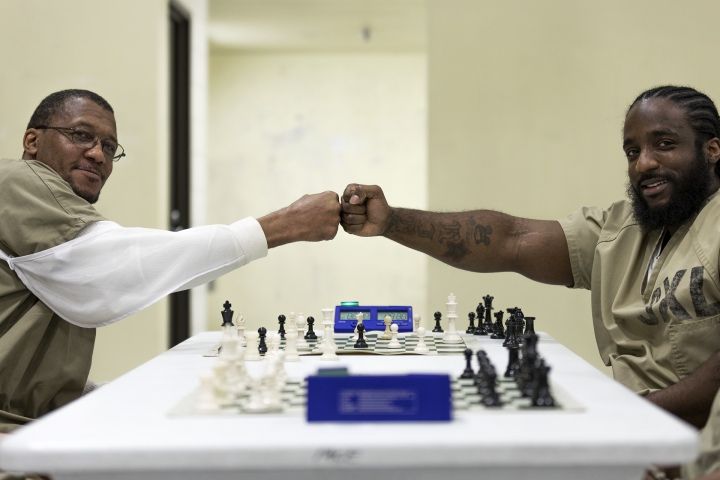
SS: Yes! Was that one of your ideas?
DRO: Although, this was not one of my concepts, I have taken on this idea and then really delivered. The initiative is not new, it was the brainchild of Mikhail Korenman. Anatoly Karpov has been a long-time advocate and ambassador of this concept. However, FIDE was not promoting this as a project in the past. Seeing how it changes the lives of the people at an individual base level and seeing how much positive energy this project is giving, it is truly a great thing.
Chess for refugees is a new idea. We are now implementing training program in Kenya. We are training 1600 young people, as well as the instructors and implementing dedicated life skills building programs for girls in girls boarding schools. The most important thing here is to give the young kids the sense of belonging by using chess. For people who are displaced, it's so important to get this sense of belongingness to a family, you know. It gives the security, it gives self-confidence. I hope it will empower them in their life so that they do not become a piece in somebody else's hands but the masters of their own life. I hope that these initiatives will inspire the society and potentially, at some point also the sponsors. Something very important that we haven't done in the past is approaching companies for CSR. We need to create our products, our projects, our suggestions and other channels that will support FIDE and chess.

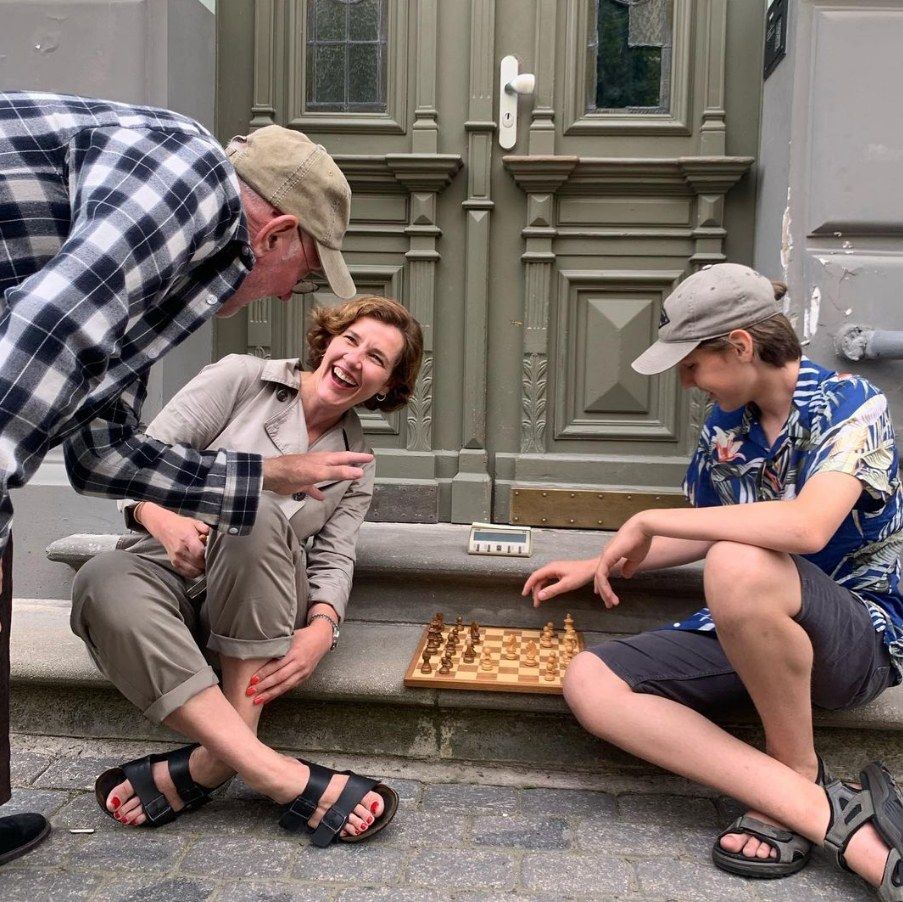
SS: So, would you say that you want to implement social projects and then bring in the numbers there and then, eventually the sponsors will see value, and money will flow into the game?
DRO: Yes! Some of the social projects that can be very powerful are chess and education, chess for women, chess for people with disability. Last year during the Covid restrictions, our Online Olympiad for people with disabilities was an amazing story. It was for sure the biggest sporting event. So, FIDE can create amazing stories using chess. In this era, Governments are not paying for sports or activities due to some geo-political reasons, sometimes they do, but it's no longer like the 60s when during cold war sports was used as a weapon to show supremacy. We have to create emotions. We have to give experiences People pay for that. So, chess has to give the experience for people and I do believe that this kind of initiative that we show how transforming chess might be has the power to give unforgettable experiences. And it will motivate people to invest, if not money, then at least, time and energy.
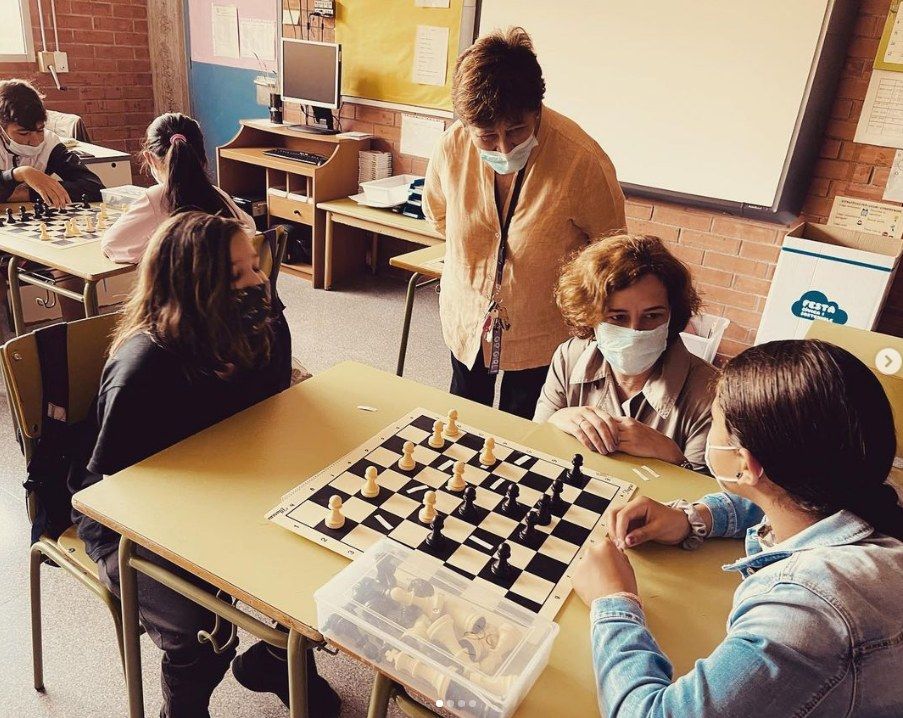
SS: But it is different from the way people have been thinking about how to make chess popular until now. The main thought has always revolved around how to make chess a spectator sport. Once that happens the money and sponsorships will come in!
DRO: People have to enjoy the sport but making chess more appealing for spectators is not the only way. That is important. However, so far that has been majorly the only approach that has been taken. But why not expand and diversify our operations?
SS: I firmly believe in this concept of ‘Chess as a social tool’. There are amazing stories of how chess has been used in India in places like Marottichal and Punjab to fight social vices. Moving on, I wanted to touch upon another subject. You come from a country where half of management positions in the Government are held by women. However, FIDE has historically been a male-dominated organization. Have you been able to work effectively? How has been your experience?
DRO: President Arkadij Dvorkovich has made the difference. I think, me being a woman is one of the reasons for proposing this position (Managing Director of FIDE) to me, although not the only reason, of course. Our colleagues in the councils and management are very serious about increasing the representation of ladies at the top management positions. So thinking of next year’s elections, this is also one of the pre-conditions worked into the election rules. There has to be minimum representation of women. I am very glad that this mind-set is changing. Diversity in gender is an advantage and it has been my huge experience from politics that I see debates, discussions, sometimes also the quarrels on certain issues between representatives of different genders often lead to better decisions. Because you are forced to have a second thought on some of the aspects. And you see, some points that you would never be able to see otherwise. This exists even in chess! I don’t know if you know the trick most of the chess players use. Sometimes, you are stuck in your position. You cannot find the move. So, you stand up and go to the other side of the board and look at the same position from the opponent's point of view. And then you see your opportunity. It is the same with the men and women.
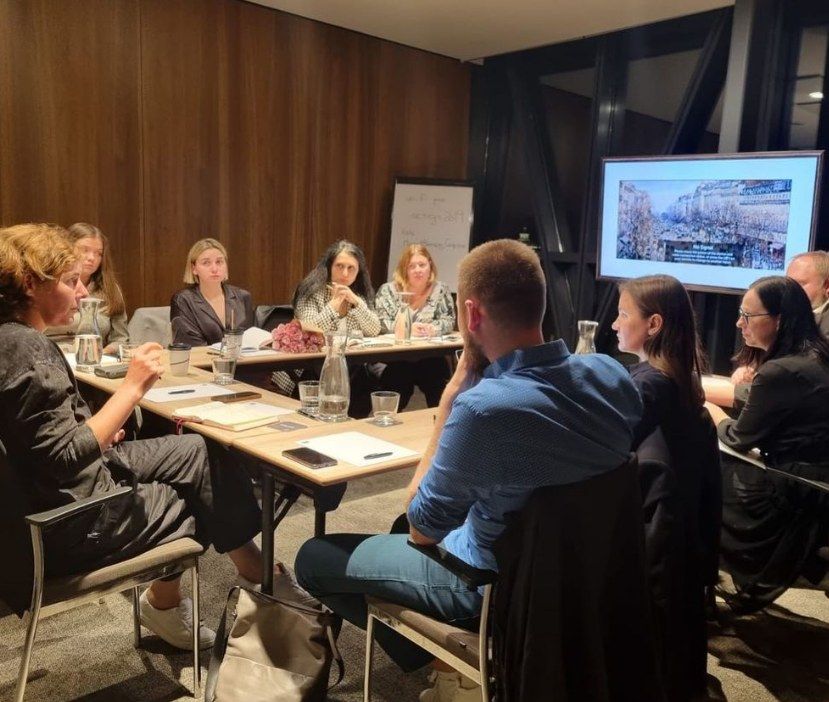
SS: People say chess imitates life. You use it heavily! Even in this interview the number of times you have given chess analogies for real life situations shows how heavily your life and thinking has been influenced by chess.
DRO: Chess has given me so many tricks and strategic approaches towards things and this is also the reason for me to promote the idea of Chess in schools. I know, that even if 90% of these kids will never become professional chess players or only one of them would become the World Chess Champion, having chess in their lives will help them to become better persons, better members of the society and learn things that are vital for everyday life.
SS: What would you say is your vision for FIDE going forward?
DRO: I would like to get chess outside, the still quite small, world of chess. It can be done by implementing appealing projects and it can be done by appealing personalities. I do not know exactly how to do it. I do not have the clear vision or plan about that but I am very keen for this to happen. People who are not from the chess world should know what's happening in the chess world - that the World Chess Championship is happening, who the leaders of the chess world are and for that you really need the leaders to reach out to the world and do a lot more than being just professional chess players doing their job on the 64 squares. I feel that my experience in non-chess world helps me to bring chess outside the chess world as well. And that is to be made use of.
SS: You are a mother of four kids, a wife. You are constantly working on one project after another, meeting people, discussing with them, taking on challenging projects. How is it possible to manage so much? Do you delegate a lot of the work you do? What is the technique here?
DRO: Delegation is still a problem for me. I have not learned it well yet [Laughs]. I do a lot of things myself. I think that I can do much of what I do because I do the things that I love and I have the support of my family and that is the source of energy for me in my life. My family is my focal point of reference. You can turn the world around, but that single point of reference sticks with you. Everyone has to create this point of reference for themselves and it can be totally different for different people. For example it's family for me, for you it can be your job, your passion or your country. Whatever it is, you have to figure that out!

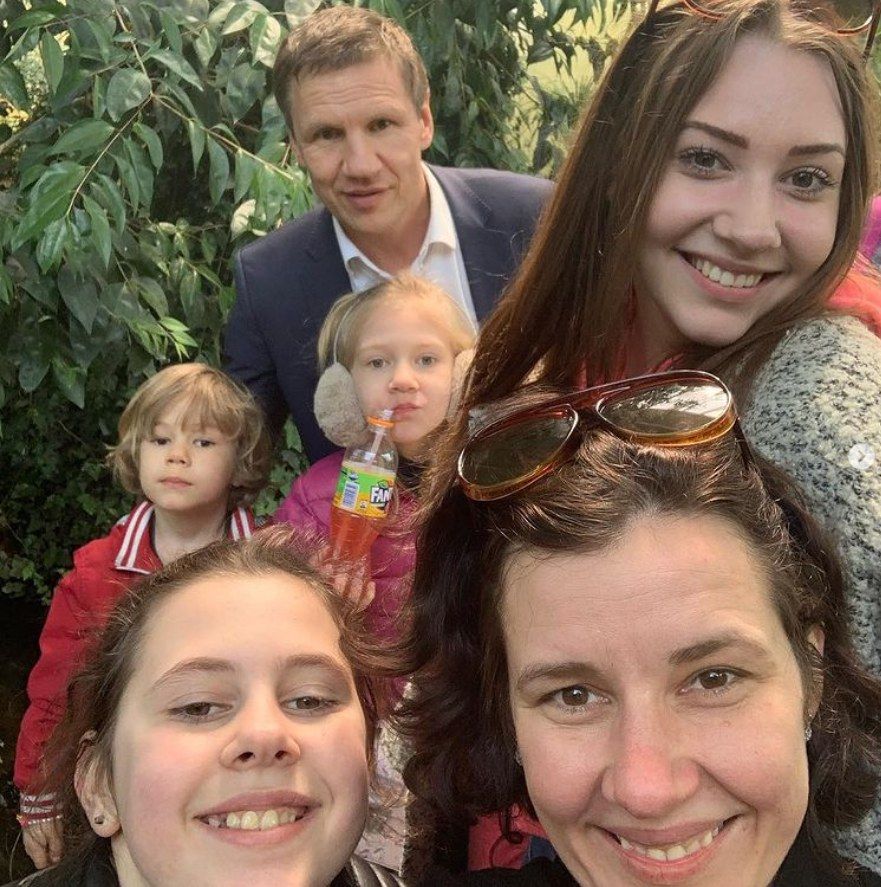
SS: How does that work - that focal point? How do you find it out?
DRO: It gives you the energy. It doesn’t consume. It gives you additional energy, a lot more than you need to spend for that and you can use it for other things. Something that you should always keep in mind is to bring balance in your life. You can keep giving to the world, but every once in a while you have to charge your batteries. I have had a point in my life when I was working so much, not that I am now working less but I am working smarter, that I forgot that there are books in the world which we should read! Books help you to be more educated, to be more emotionally intelligent to be more pleasant to others. So that in the end you have something to give to others as well. You have to feed yourself with knowledge, skills, emotions, love and then you can spread it like a little sun!
SS: You said, you started working smarter. What did you do?
DRO: I do not procrastinate things. That is something that I think is a problem with a lot of us. If there are some unpleasant things you try to get them in the deeper shelves and that creates additional stress to you and then you are unable to deliver also on the simple tasks. So, the trick is that I face the most unpleasant things and I try to do them first and it works. Not that I always succeed but this is one of the tricks that I try. I face the unpleasant things and somehow at noon you are already so happy because you have cut the elephant into pieces and eaten it [Laughs]. You have to start. The first move is the most difficult one.
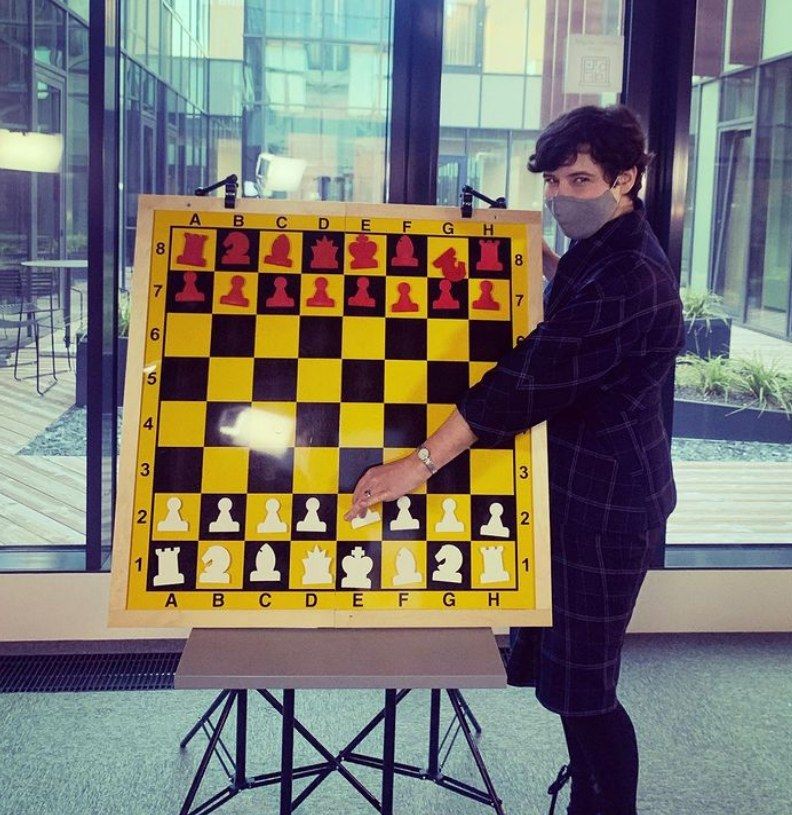
SS: Did you read some books that inspired you. Is there some material you can recommend?
DRO: No! I cannot recommend any books to be read on these self-improvement things! The Bible, I believe, is my book that would be something that I can recommend to somebody. But not the self-improvement shelf. Those books are sometimes even misleading like, for example, many of them teach you that if you do not like your job, just quit and do whatever you wish and follow your dreams. I would say that it is very dangerous, especially, for the younger minds. You are pushing people to the edge of the cliff. My trick is that if you do not like your job or you are not sure, try to learn more about it and you will get the taste. The more you will understand what is going on and the more you start to know about the things, I am pretty sure more you will like it and at some point, you will love it. It doesn’t work always and if you are totally in the wrong place, it is better to leave. But it is only your heart that can tell you that and, probably, your mom and your best friend, not others! Because others might be just jealous of you and suggest you to leave.
SS: Lastly, after FIDE, what do you have in mind? Is there something else you would like to do?
DRO: The doors will open themselves. The right direction will come if I deliver well here in FIDE. But for now I like to work in FIDE very much and I am not rushing anywhere else.
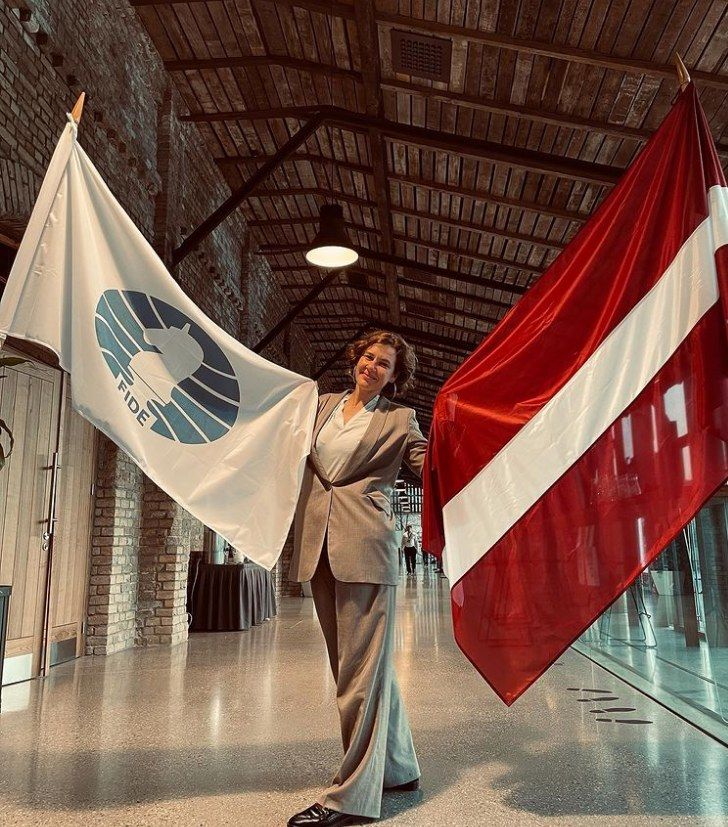
SS: It is been a pleasure talking to you. I have learned so much. Thank you.
DRO: It is my pleasure. Thank you.
To stay updated with Dana's life and work, you can follow her on Instagram
A big thanks to Shobhan Bhattacharjee for helping in the transcription of this interview


